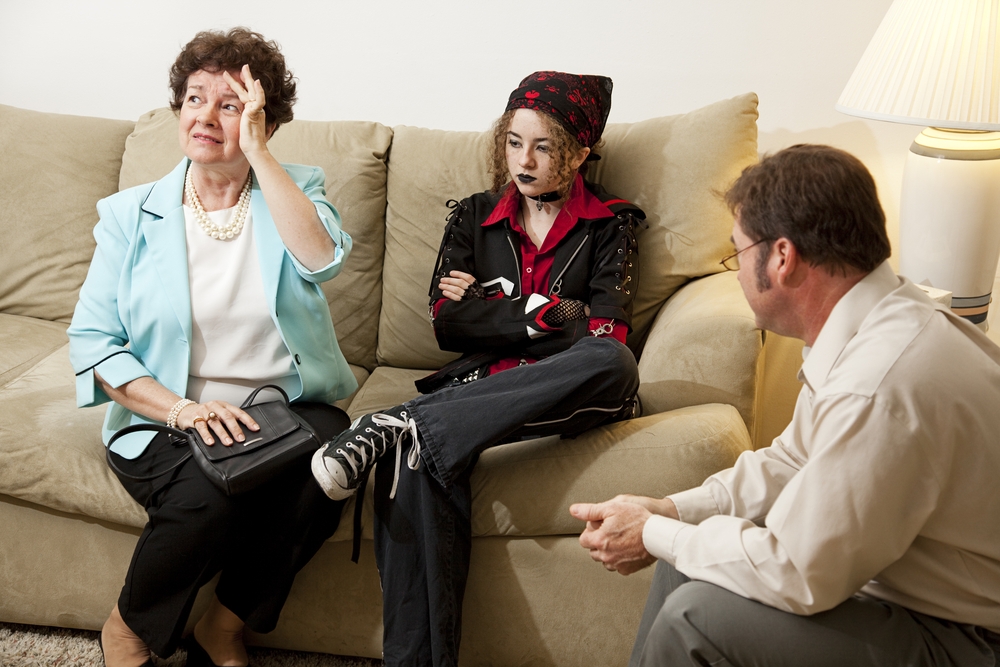Advantages of using CIFFTA
Culturally Informed and Flexible Family-Based Treatment for Adolescents (CIFFTA) was developed to enhance the ecological validity and treatment outcomes for Latino/Hispanic adolescents and families. CIFFTA is the culmination of a formal and systematic treatment development effort (Santisteban & Mena, 2009; Santisteban, Mena, & Suarez-Morales, 2006;
Santisteban, Mena, & McCabe, 2011; Santisteban, Mena, & Abalo, 2013). The systematic stage model for development and testing of behavioral treatments specifies the steps from a creative concept, through manualization and testing, and all the way to dissemination (Rounsaville, Carroll & Onken, 2001). The development work consisted of:
- Integrating the most recent findings in the areas of culture, family processes, developmental factors, and the treatment of drug and behavior problems.
- Conducting our own research on Latino/Hispanic youth and families to learn more about the intersection of cultural factors and risky sexual behaviors (e.g., Mena, Dillon, et al., 2008) and parent-child immigration-related separations and psychological symptoms (Mena et al., 2013).
- Creating psycho-educational modules that linked cultural influences and family processes.
- Designing a systematic process of assessing important tailoring variables and creating a profile that can be easily used by clinicians.
- Utilizing a series of pilot cases in which the feedback from adolescents, families, and therapists was used to create the final refinements of the model (Santisteban, Mena, & Suarez-Morales, 2006).
Knowledge of how culture-related factors interact with core family processes is built into the manual and training activities.
CIFFTA includes a tailoring report/profile that helps the therapist use intake data on key clinical and culture-related variables to tailor the intervention package/modules. This tailoring report/profile helps the therapist to efficiently utilize the intake data for treatment planning and treatment tailoring. CIFFTA and its innovations have been tested as both an early intervention/drug prevention program and as a drug and co-occurring disorders treatment intervention. Three recent randomized clinical trials implemented over the past six years alone have provided over 10,000 treatment sessions to over 450 families and have helped advance the science of adolescent and family treatment.

Some of the major findings with older adolescents with serious drug use problems.
- CIFFTA was significantly more efficacious than the comparison treatment at reducing drug use (Santisteban et al, 2011).
- CIFFTA was significantly more efficacious than the comparison treatment at improving parental practices, as adolescent reported CIFFTA led to significantly more improvements in Positive Parenting and Extent of Involvement (Santisteban et al, 2011).
- CIFFTA showed a significant pre-treatment to post-treatment reduction in drug use and adolescent psychiatric symptoms as reported by both adolescents and parents (Santisteban, Mena et al, in preparation).
Some of the major findings with younger adolescents with behavior problems.
A study examining a computer assisted version of CIFFTA (Santisteban, Czaja, Nair, Mena, & Tulloch, In press) found:
- Data supported the feasibility of the intervention as families reported that CIFFTA was relatively easy to use and very helpful in their treatment.
- Computerized CIFFTA led to a significant reduction in behavior and conduct problems compared to a delay treatment condition.
- Computerized CIFFTA led to more improvements in family functioning, such as improvements in family cohesion, compared to the delay.

A second prevention intervention study was recently completed (Santisteban, Mena, et al, under review) and found that:
- Both CIFFTA and the individually oriented treatment based on Cognitive Behavioral Therapy were equally efficacious at reducing behavior and conduct disorder problems in kids.
- CIFFTA was significantly better than the comparison condition at retaining families in treatment.
- CIFFTA was marginally better than the comparison condition at improving family functioning.
Our CIFFTA team has published over 40 articles, book chapters, and provider-oriented treatment guides focusing on engaging underserved populations, treatment outcomes, family interventions, cultural competence, training of family therapists, and real-world problems of implementing evidence based practices. We have also conducted national and international presentations on treatment and research. The experience of these trials has also led to the development of expertise in training clinicians to implement family-based interventions, providing treatment to complex cases while maintaining a high level of fidelity to the original treatment framework, and ensuring cultural competence.